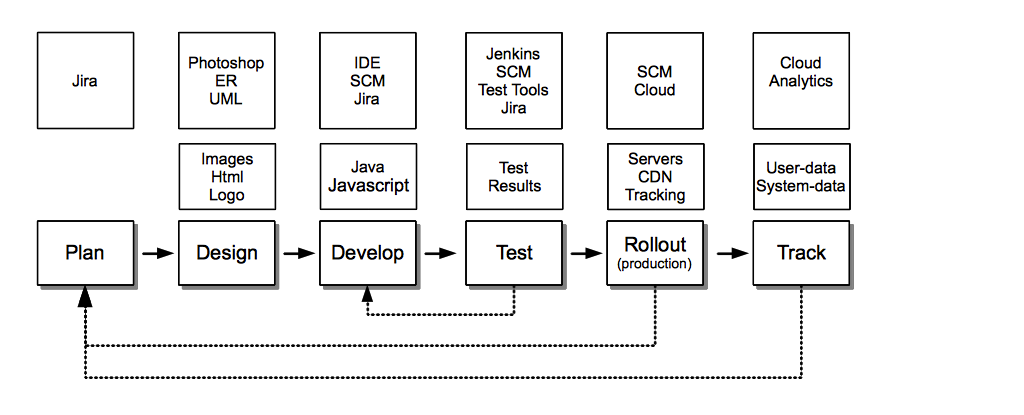The web development lifecycle is a
more exact difference on the general frame for developing any application
development project. Dissimilar general application development, all webs intend
and expansion projects follow a similar structure, so the web development
process can be drawn ahead as a point of suggestion for both the web
development team and the client to verify the status of any given project and
the area of activity to address next.
The Web Development is created of
eight stages described as follows:
1. Preliminary Consultation
The preliminary Consultation looks
for to appreciate the high level business necessities, the scale of the web
development, necessary delivery agenda, and the overall possibility, web design
and cost of the project.
2. Project Specification
The business requirements of the planned
website are iteratively established between the Client and the web design squad,
and documented in the form of a High Level Requirements Specification. Focus
here is on the pertinent business rules and results. Implementation of the
system, how the necessities are actually delivered, is reserved for soon after.
Once agreed, this document will form the beginning of the succeeding stages of
the Web Development Life cycle.
3. Web Site Architecture
Here the software and hardware necessities
for delivery of the web application are recognized, such as the most suitable
web application development language, operating system, database management
system (DBMS), and hardware / hosting environment that are most suitable to
support the final website in a durable and trustworthy manner.
4. Web Site Design Cycle
The plan of the CRM would also be
full measured here also. This web application performing is considered in the circumstance
of the defined results and business rules, and may effect in the High Level
Requirement Specification being up to date. Following
this, a key deliverable here is a Low Website Design / Document exactly
defining the required execution of the web design.
5. Content Collation
Any necessary graphical and textual
content for the web application is developed or acquisitions by the Client.
Admin panel in a website which enables the Client to rectify the full content
of the site from system initiate, and on an enduring basis, is unspecified to
have been included and defined as mentioned.
6. Web Site Project development
This phase actually overlaps with
the next stage of the Web Development since all web developed modules are unit
tested to obliteration by the corresponding web development team members.
Further, it is very significant that all code produced by the software
developers is superiority checked to ensure obedience to project development
standards.
7. Testing & Quality Assurance
Many forms of testing are carried
out during this stage, from system and volume testing - in order to make sure
that all components work together within the web application and can simply manage
with both the original and predictable future demands on the system. There are
many forms of testing required during this stage that are beyond the extent of
this introduction, such as cross-browser and security test - all contributing
towards the release of a high-quality website and examine to the client.
8. Web Site Deployment (Launch)
Once the website implementation is
tested and unconfined by both the client and software Development Company as
being fully prepared, the website is deployed to the construction setting and opens
to the pertinent user base. Following this there is generally a pre-agreed
period of guarantee and an ongoing support agreement can be established at the carefulness
of the client.

The best approach to software development prioritizes iterative refinement, collaboration, and adaptability to meet evolving user needs and technological advancements and visit CMOLDS Dubai a web development services in dubai company specializing in web and app with great expertise.
ReplyDelete